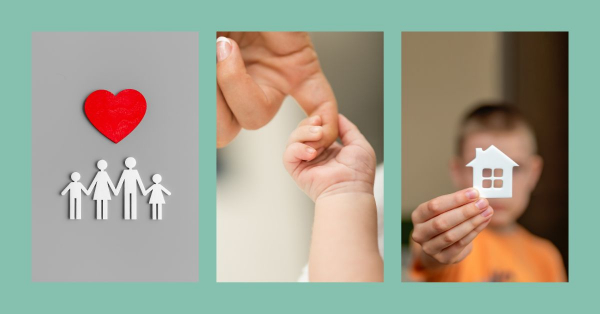Fostering/Adopting A Child That’s Come From An Abusive Home
Child abuse comes in different forms. A child who comes from an abusive home may have experienced emotional abuse, physical abuse, sexual abuse, and neglect. Some children also experienced trauma while in the womb via prenatal drug usage, chaotic lifestyles, and poor nutrition. Regardless of the type of abuse suffered, it is important for families to prepare for fostering or adopting a child who comes from an abusive environment. Here are a few things to keep in mind:
1. It is very important to set up your home as a ‘healing home.’ Take a look at your surroundings. Does your home feel safe? Are there potential hazards that could cause harm to children who do not understand safety? Is there a space for privacy or one that could be used as a “safe spot” for the child to go when feeling stressed? Your home does not have to be perfect and you may have to make changes once a child moves in, but you do need to think about ways you can make your home a place of comfort and healing.
2. Teach any children who live with you (including biological children) about the importance of personal space and boundaries. Some children who have experienced abuse may not recognize the need for personal space or appropriate boundaries. Set firm yet gentle boundaries in regard to bathing, affection, and social interactions both within the home and outside of the home.
3. Educate people who often interact with your child about how to handle him or her but remember to maintain confidentiality. You do not have to tell the child’s story. Instead, you can let teachers, neighbors, and others know that the child may need more verbal cues, more strict boundaries, and soft voices due to his or her life experience.
4. Set up a system that awards positive character traits and choices as opposed to one that punishes for misbehavior. This can be challenging! While you should not ignore an inappropriate behavior, you do need to consider how to respond to a challenging issue with the child. Learn to pick your battles. Some may not be worth it unless the behavior is extremely disruptive or unsafe. Teach the child about expectations by modeling, practicing it, and rewarding the child. Also, it is strongly encouraged to not only notice good choices but to emphasize the positive traits of the child. In other words, “Don’t water the weeds. Water the flowers.”
5. Locate resources and other people who have experience working with or parenting children who have been abused. These people will be your “go to” when times get hard. Don’t’ be afraid to ask questions and try new ideas for approaching challenges.
6. Work hard on building a relationship with the child. Because of the type of abuse a child has suffered, it might be hard to build trust and rapport. Foster parents also need to be aware of their own set of expectations, attachment histories, and idealistic thinking. These kids have been through enough as it is. Remind yourself that Rome wasn’t built in a day and each child deserves intentional parenting and a trusting adult.
7. Take care of yourself. Self-care is essential. Did you catch the word, essential? It is so important for families caring for abused children to take the time needed for their marriage (if married) and for themselves. Taking care of yourself helps to keep you physically, emotionally and spiritually strong to do your best at taking care of children from hard places.
8. It is important for you to remember that while you did not cause the abuse, you are able to help with the healing process. This takes a lot of patience, courage and resilience. Don’t be hard on yourself. If you make a mistake, learn from it, and try something else.
9. If you are married, being a tag-team is quite valuable. One of you might be more playful while the other is more structured. One of you might have a bit of a quick temper, while the other is more laid-back and methodical. These characteristics can carry you far as a foster family. If you are losing patience, tag your spouse to step in. Plus, the kids will learn that marriage and parenting are partnerships and family is able to rely on each other.
10. Don’t ever lose faith that the child you are parenting can grow, develop better social skills and have healthy relationships. In other words, don’t give up! There is a tremendous amount of research in how trauma affects the brain and the good news is that the child CAN heal! A good book about this subject is, “The Connected Child: Bring Hope and Healing to Your Adoptive Family” by Dr. Karyn Purvis, David Cross, and Wendy Sunshine.
Foster parenting is not for everyone, which is what makes YOU so brave and vital. You are on the front lines of the war against child abuse and neglect. Parenting children who have been abused looks a lot different than parenting children without trauma. However, the children you are caring for will become adults and, most likely, parents. Every tear and ounce of effort that you give towards helping a child heal will have ripple effects that reach into generations. Give that a thought.








